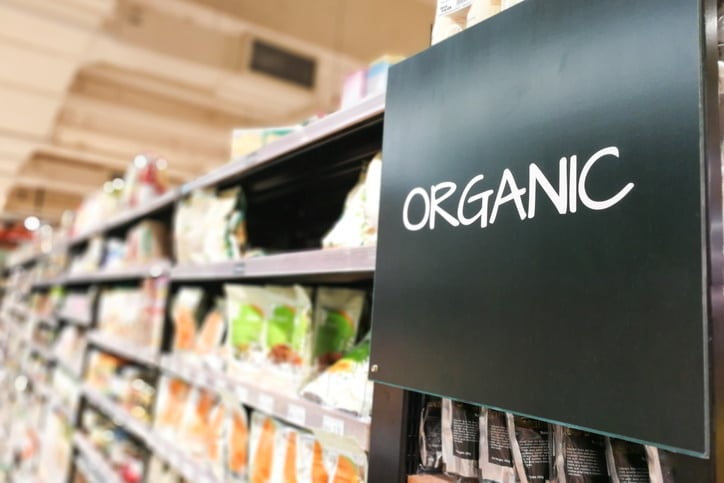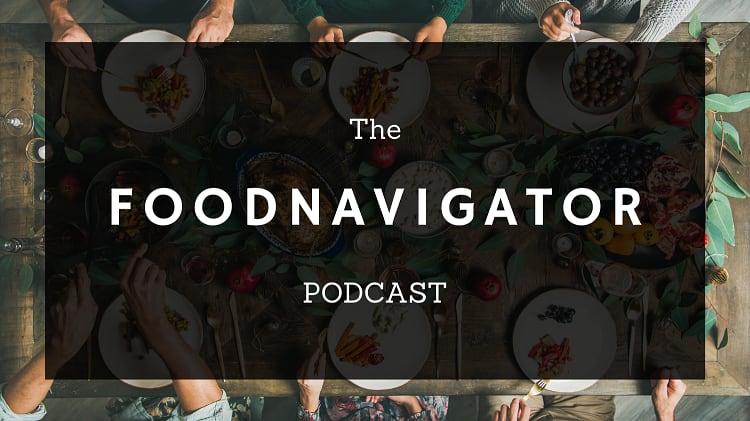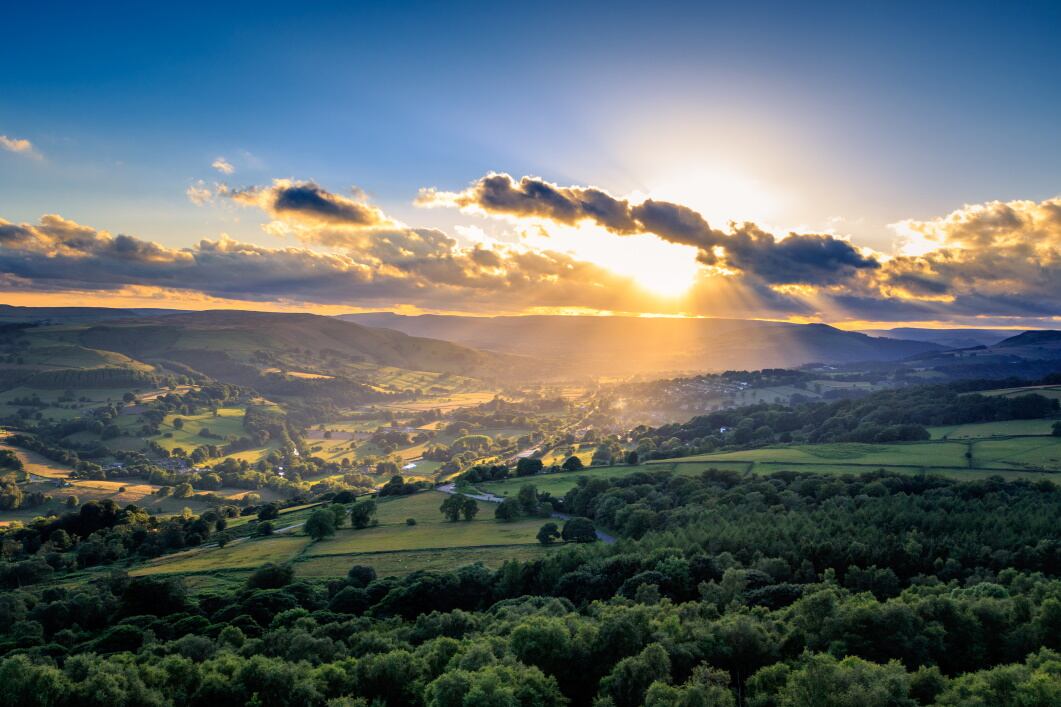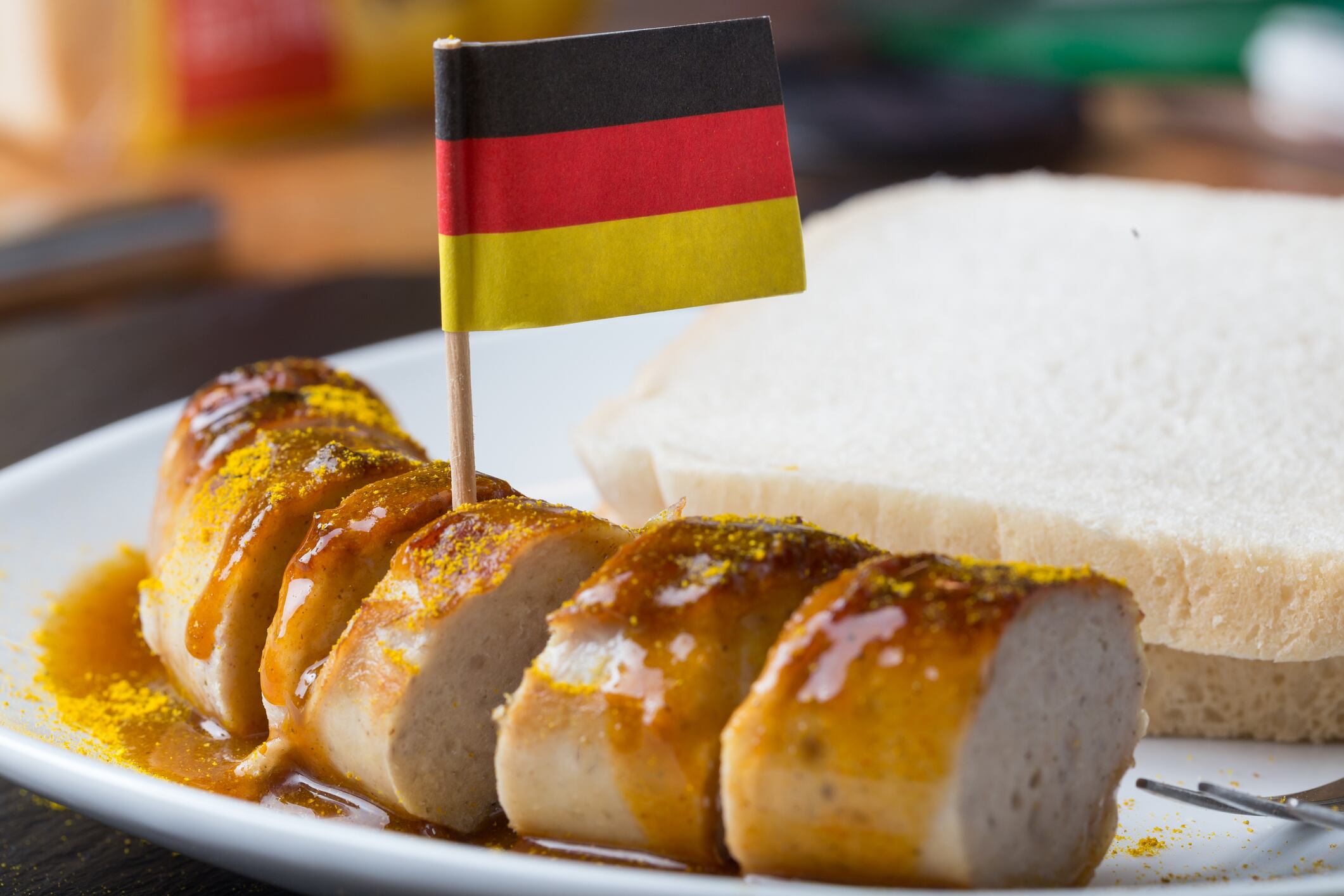Germany is the largest market for organic food in Europe. According to figures from industry body Bund Ökologische Lebensmittelwirtschaft (BÖLW), the organic market grew to a value of €14.99 billion last year, up from €12.26 billion in 2019. Germans bought 22% more organic food and beverages during a period that saw organic sales increase at about twice the rate of the overall food market.
Top sellers for the year included organic meat, flour, fruit, and vegetables, with growth figures of between 70% (for poultry) and 25% (for fruit). The organic share of the food market rose ‘sharply’ to a preliminary figure of 6.4%.
BÖLW said this ‘growth explosion’ came at a fortuitous moment for organic producers, which have increased in numbers in recent years.
It typically takes a producer around three years to gain organic certification, meaning that new product development and securing organic supplies can be a slow process in the organic sector. The industry was not overwhelmed by the 2020 corona-related surge in demand, however, because recent years have seen noteworthy growth in the number of farmers and food processors moving into organic production.
In 2020, organic farming in Germany covered 35,413 farms and 4,197,737 acres of land. Over 8,000 farms chose to adopt organic practices over the last five years, although a higher figure - almost 12,000 - have closed their gates in Germany over the same period.
Currently, 10.2% of Germany’s agricultural land was managed by organic farmers, while a 5.3% increase in land area last year created a further 209,866 acres of organic land.
“The historic growth in organic products shows that consumers, farmers, and food companies have long since changed their agricultural and nutritional habits,” observed Felix Löwenstein BÖLW chairman.
Targeting transition to organic production
According to BÖLW, this performance demonstrates that it is possible to meet the European Commission target for 25% of cultivated land to be organic by 2030.
“A look back at 2020 and recent years shows that the 25% organic target that the EU has set itself by 2030 with its Farm to Fork Strategy is achievable,” said Löwenstein. “To ensure that enough farms can seize the opportunity to go organic, government must clearly come down on the side of sustainability.”
The incoming German coalition government – a three-way alliance between the centre-left Social Democrats, the Greens and the libertarian Free Democrats – appears to have done just that. When it presented the coalition agreement last month, terms included the target for 30% of German farmland to be organic by the beginning of the next decade.
To achieve this, it has promised more financial support to help farmers make the switch from conventional to organic farming. “Sustainable agriculture also serves the interests of businesses, animal welfare and...nature and is the basis of a healthy diet,” the coalition deal said.
'Dare' must become do
Perhaps unsurprisingly, the commitment was broadly welcomed by the country’s organic association. But politics is never short of targets. What really matters is action, BÖLW CEO Tina Andres stressed.
The 30% ambition shows the traffic light coalition ‘dares to make more progress’ but ‘dare’ needs to become do, the organic industry leader insisted. She explained that supporting organic production is an important lever for Germany to not only implement Europe’s Green Deal goals – but also to support a transition to a sustainable food system. “With organic, the new federal government is moving towards climate-friendly agriculture and healthy nutrition that are suitable for [our] grandchildren.”
While it makes sense for the planet, it also makes sense for the pocket, she argued. Organic production is a system of production that preserves biodiversity, climate, water and soil health ‘cheaply’ in a ‘tried and tested manner’.
Organic also makes business sense and offers a boost to the overall economy, the sector champion suggested. “Sustainable companies, from the farm to the organic trade, have good economic prospects."
BÖLW: Invest 30% to hit 30%
What action do organic producers want to see the Federal Government take to support sector growth?
Peter Röhrig, managing director of BÖLW, insisted that investment is needed from the Federal Government and stressed that the 30% target will only be successful if this is reflected in national spending plans. He said that investment is needed to support companies and farms convert to organic, and pointed to the opportunity that the government has to support the sector through public procurement.
BÖLW wants to see 30% of ‘funds and resources’ ‘consistently invested’ in the organic transition.
With the country’s new Federal Chancellor Olaf Scholz being sworn in last week, Andres stressed the need for the new government to hit the ground running.
“Time is of the essence to tackle the restructuring of agriculture and the food industry... A coherent policy for the conversion with organic will only succeed if all departments pull together,” she said.
CAP could hinder, not help, organic conversion
All eyes will now turn towards the Federal Council vote on national rules for the EU Common Agricultural Policy (CAP) that will be adopted from 2023. According to BÖLW this is a pivotal decision for the future trajectory of the organic movement in Germany.
“What is available to the regional chamber endangers many organic farms,” warned Alexander Gerber, BÖLW board member.
The association says that under proposed national CAP rules, organic farms would be ‘worse off’ because not all seven of the ‘eco schemes’ that will reward environmental protection from 2023 will be open to organic farmers. This situation must be addressed to reach the 30% target, Gerber argued.
“Only if things are improved now will 30% organic or the higher organic goals of the federal states have a chance at all. This is the only way to get enough organic from the region that customers are already asking for today. And only then can bio protect the environment and the climate and strengthen local added value in the regions."
If the federal states do not improve the CAP regulations, the agricultural reform will be the first practical test for the designated Federal Minister of Agriculture, Cem Özdemir, Gerber explained.
“The new Federal Minister of Agriculture will have to explain how he wants to finance 30% organic,” said Gerber, noting that CAP payments are worth around €6bn annually to Germany's agri-food sector.




